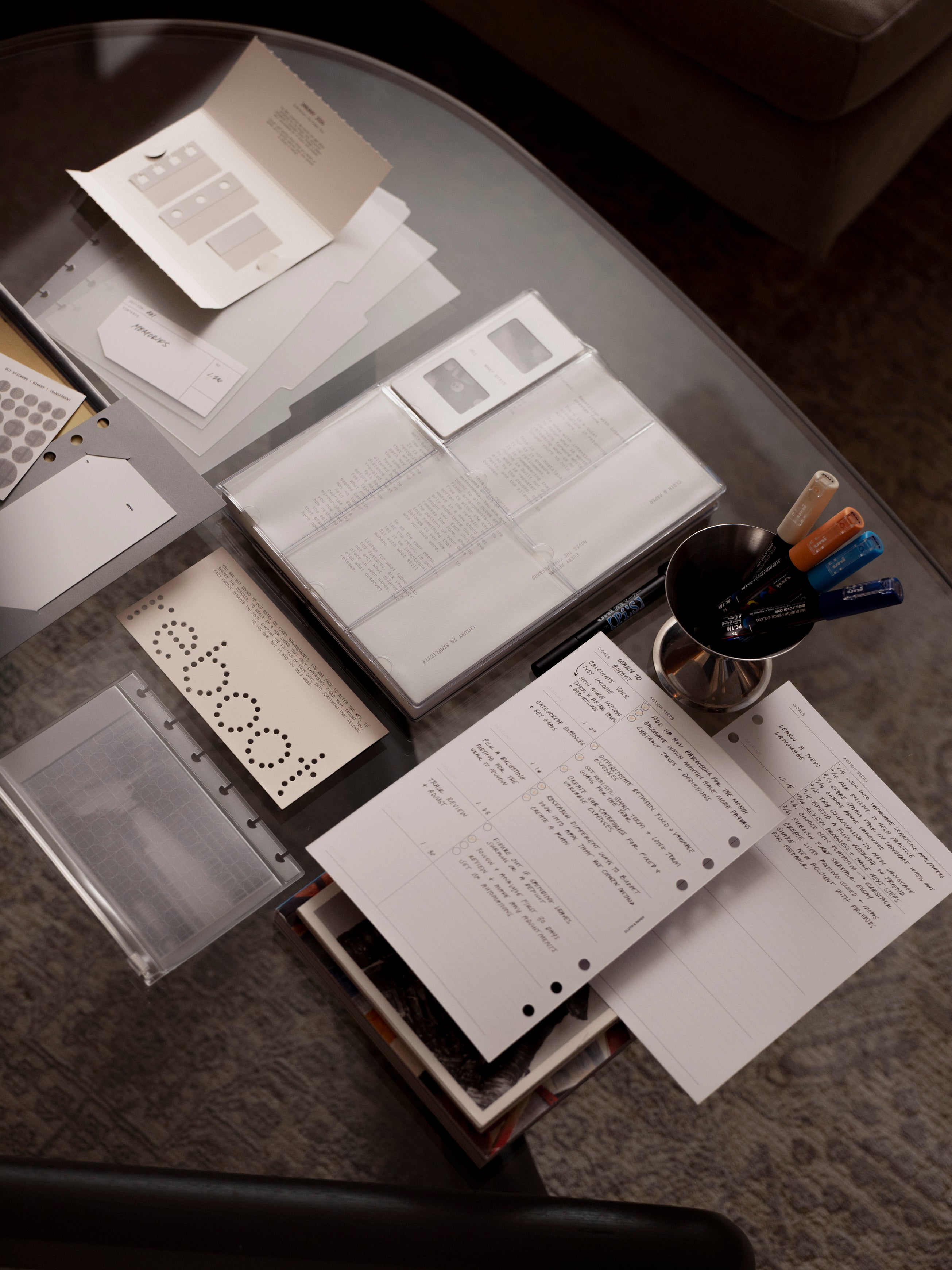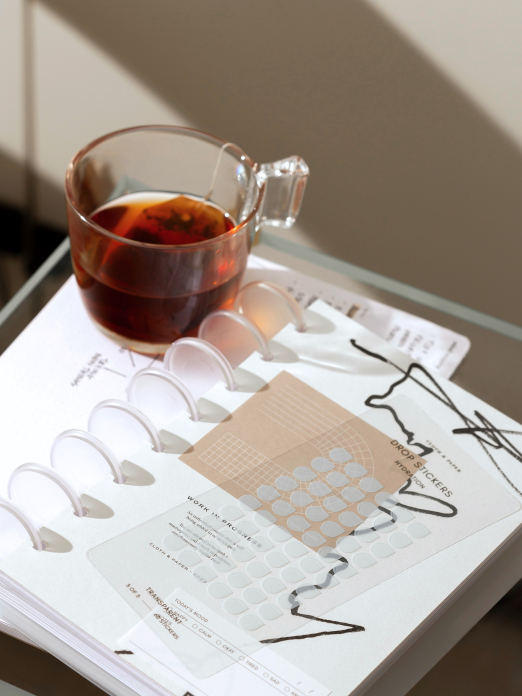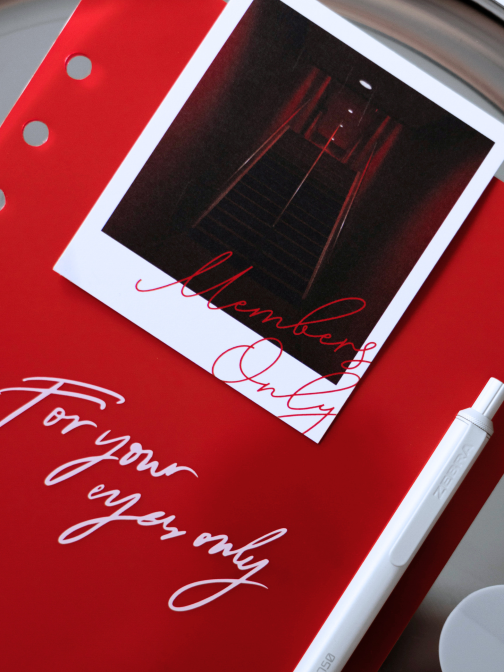Reclaiming Control: How Planning Helps You Find Peace in an Unpredictable World
Changing patterns, hectic schedules, and unexpected news can all make things feel out of our control. While we can't control everything, we can find ways to stay present. Planning is an excellent way to create structure, calm, and intention in everyday life. This article explores how planning can give you a greater sense of control, no matter what is going on around you.
When the World Feels Out of Control
Maybe you're feeling the weight of daily responsibilities, or the bigger picture of the world just feels heavy. You're absolutely not alone. Many of us are navigating this shared sense of uncertainty, and it’s completely okay to acknowledge how draining that can be. While we might not see big changes soon, here's a hopeful thought: we can look forward to brighter days, and we can keep finding ways to move forward.
This isn't about doing more or being completely productive. Instead, it's about something much deeper: planning as a genuine source of personal empowerment. As the saying goes, you can’t control the world, but you can create peace in your corner of it.
Understanding the Need for Structure
The brain naturally relies on order and predictability. With even a bit of structure, there’s a sense of ease and safety. The encouraging part? Even a small functional structure is not about constraint; it is about making room for freedom. Setting up intentional routines for things we can control, such as a morning routine or time blocks for specific chores, allows us to free up mental energy and organize our days to support what is most important.
It's also easier to make time for things that make you happy, such as a favorite pastime, a meaningful conversation, or simply a quiet minute to breathe. That is the peaceful power of intentional planning—it relaxes you and softly reminds your mind that you are creating space for what feels good.
Planning as a Personal Power Practice
Think of planning as a way to give back to yourself. It allows you to pick how you want to spend your time rather than allowing the day to unfold naturally. When you plan, you decide where your energy will go, ensuring that your activities are in line with your most important values.
This clarity also makes it easier to say "yes" to what truly serves you and "no" to what doesn't, without guilt. That feeling of confidently setting boundaries brings a wonderful sense of relief and empowerment. The best part? Small, thoughtful tools can make this practice feel effortless, even enjoyable.
- A simple monthly rhythm, like the one you can create with the June Intention Box, offers tools for a gentle check-in point. It includes planner essentials that can help set the tone for how you want to feel, what you want to focus on, and how to make space for joy. Pair it with Daily or Weekly Admin Inserts to build structure on your terms—whether that means blocking time for deep work or leaving room for spontaneity. These tools turn planning into a flexible rhythm.
- Intentional routines also include making time to check in with yourself. The Experience Reflection Planner Inserts with a Kaweco Art Sport Fountain Pen are designed for just that. They encourage quiet reflection and help you notice what’s working, what’s shifting, and how you’re really feeling. It’s a subtle but powerful way to stay connected to yourself.
- And let’s not forget your environment. A calm space makes all the difference. A spritz of Basilica Room Spray can help ground you, whether you’re setting intentions, journaling, or simply sitting still. It’s a signal to the senses: this is your time.
There’s no “right” way to do it. Experiment, adjust, and find what works for you. After all, the best routines are the ones that give back, without demanding more than you have to give.
4 Small Ways to Start Reclaiming Control Today
Ready to dip your toes in and start feeling more grounded? Here are four simple, actionable steps you can take today:
-
Create a non-negotiable morning or evening routine—just for you. This isn’t about fitting in an hour-long workout (unless you want to!). It could be 10 minutes of quiet reflection, enjoying a cup of tea, or simply stretching. The key is that it's a sacred time that you protect.
-
Use planning as a tool to process, not perform. Don't just list tasks. Use your planner to brain dump anxieties, celebrate small wins, or even just free-write about how you’re feeling. It’s a safe space for your thoughts, not just a performance review.
-
Write one thing you can control each day. When the world feels chaotic, concentrating on what is within your control is quite effective. It could be as basic as "I can control my breakfast choices" or "I can control how I respond to this email."
-
Use dashboards or sticky notes to visually anchor your priorities. Simply seeing your top three objectives on a dashboard or a brightly colored sticky note might help you cut through the clutter and stay focused on what is truly important.
Planning as a Form of Resistance and Reconnection
The world drives us to move quicker, do more, and be always connected. That's why deciding how to schedule your day is already a significant decision—especially in an era of instant fixes, frequent notifications, and one-size-fits-all solutions. You are not required to stick with a system simply because it is popular or familiar. If something feels like another chore or adds more noise than clarity, it might be time to shift.
Sometimes, the most meaningful change is stepping back, slowing down, and building something more thoughtful—something that truly fits your life. There is comfort in knowing that you can start over at any time. Your planner can be a safe place to reset, reflect, and remind yourself that you have the freedom to accomplish things your way and at your own pace.
You’re Allowed to Feel Grounded
It's okay to feel centered, even when the world outside is unpredictable. We believe true luxury is simply finding calm in what truly matters. Planning isn't about being perfect or keeping up with others; it's about creating your own space to slow down, be intentional, and embrace that life is a journey in progress.
Allowing oneself to plan in the way that feels right is an effective form of self-care. When you're refreshed, you'll have more to share with the people and experiences that are most important. You cannot control everything, but you may clarify your plans and attain inner calm. More than just arranging, peace planning entails reclaiming your power and living with intention.
So, take a moment, trust your flow, and choose a planning style that helps you feel secure and strong. Your journey is uniquely yours, and reconnecting with it often happens through the simple act of planning with pen and paper.









1 comment
I truly love these blog posts. I take a lot of these points to heart, and I write them in my commonplace CP Petite journal! Please keep them coming. Thank you!
Kimberly Albarelli
Leave a comment
This site is protected by hCaptcha and the hCaptcha Privacy Policy and Terms of Service apply.